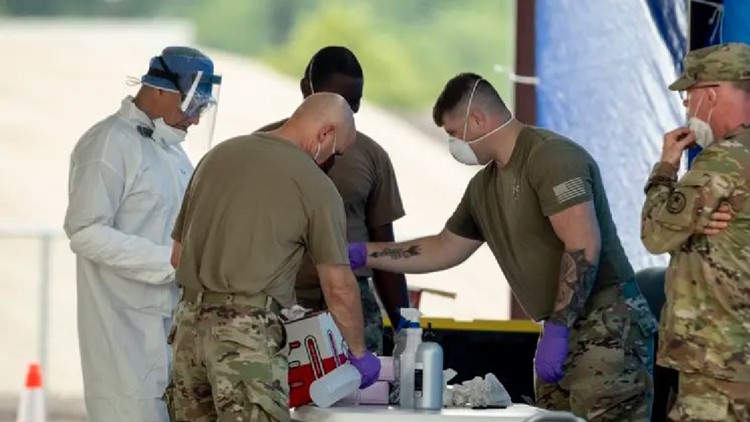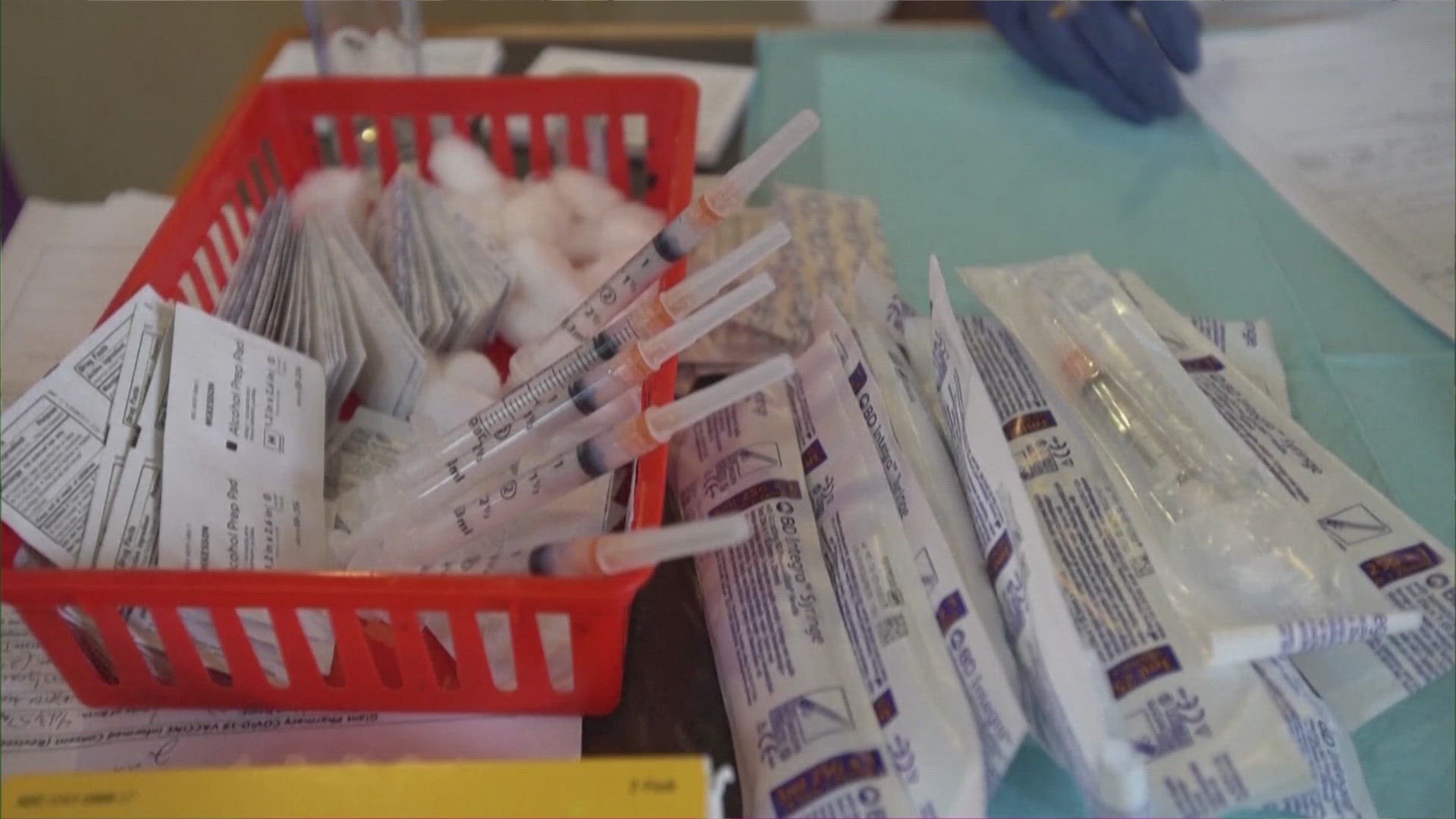Roving test sites staffed by the Texas National Guard — a state solution to increase coronavirus test access outside of major cities — have sometimes proven to be logistical nightmares or left patients waiting days or weeks to find out if they have COVID-19.
Among them: Gretel Bardin, a two-time breast cancer survivor with asthma, who’s barely left her house since March.
She was tested at a mobile site in Aransas County on May 12, hoping it would give her peace of mind. But it's “almost a month later, and nobody knows what's happened,” she said.
Announced by Gov. Greg Abbott in April, the mobile units have made brief stops in more than 220 counties, initially concentrating on rural and suburban areas that are not in close proximity to free test sites that have been available for months in larger Texas cities. The temporary sites are staffed by members of the National Guard and coordinated with the Department of State Health Services and the Division of Emergency Management.
While many county leaders said they are grateful the state swooped in to perform tests, others described short notice and planning challenges, particularly in the first days the units were deployed.
“We would not do it again without knowing it was better managed at the state level,” said Mills County Judge Ed Smith, whose community, 100 miles west of Waco, was among the first to host one of the units in April. He learned the unit would be coming to his county with less than 24 hours of notice, when state health officials made the announcement on a regular conference call with local leaders.
“Surprise!” he recalled. “I’m saying, wait a minute, if I hadn’t been on that phone call, we never would’ve known.”
Some counties have also had test results delayed for weeks after mobile unit visits, significantly longer than the one- to three-day turnaround time now cited by commercial laboratories.
Roving test sites staffed by the Texas National Guard — a state solution to increase coronavirus test access outside of major cities — have sometimes proven to be logistical nightmares or left patients waiting days or weeks to find out if they have COVID-19.
Among them: Gretel Bardin, a two-time breast cancer survivor with asthma, who’s barely left her house since March.
She was tested at a mobile site in Aransas County on May 12, hoping it would give her peace of mind. But it's “almost a month later, and nobody knows what's happened,” she said.
Announced by Gov. Greg Abbott in April, the mobile units have made brief stops in more than 220 counties, initially concentrating on rural and suburban areas that are not in close proximity to free test sites that have been available for months in larger Texas cities. The temporary sites are staffed by members of the National Guard and coordinated with the Department of State Health Services and the Division of Emergency Management.
While many county leaders said they are grateful the state swooped in to perform tests, others described short notice and planning challenges, particularly in the first days the units were deployed.
“We would not do it again without knowing it was better managed at the state level,” said Mills County Judge Ed Smith, whose community, 100 miles west of Waco, was among the first to host one of the units in April. He learned the unit would be coming to his county with less than 24 hours of notice, when state health officials made the announcement on a regular conference call with local leaders.
“Surprise!” he recalled. “I’m saying, wait a minute, if I hadn’t been on that phone call, we never would’ve known.”
Some counties have also had test results delayed for weeks after mobile unit visits, significantly longer than the one- to three-day turnaround time now cited by commercial laboratories.



